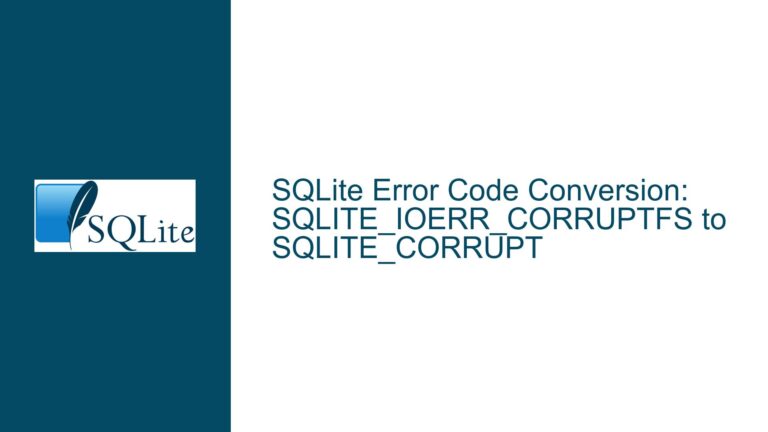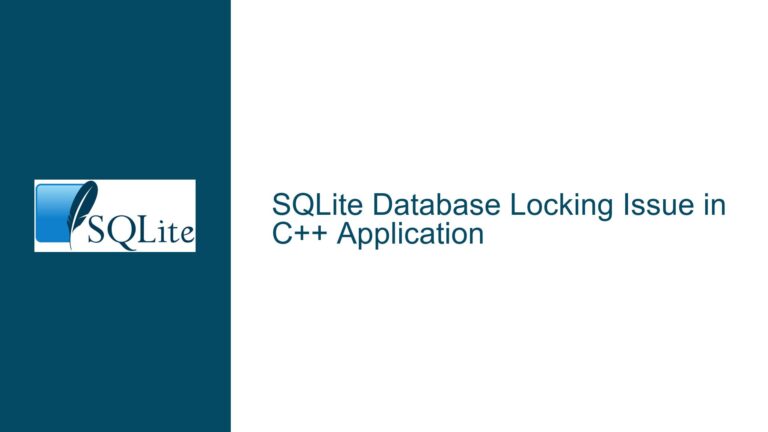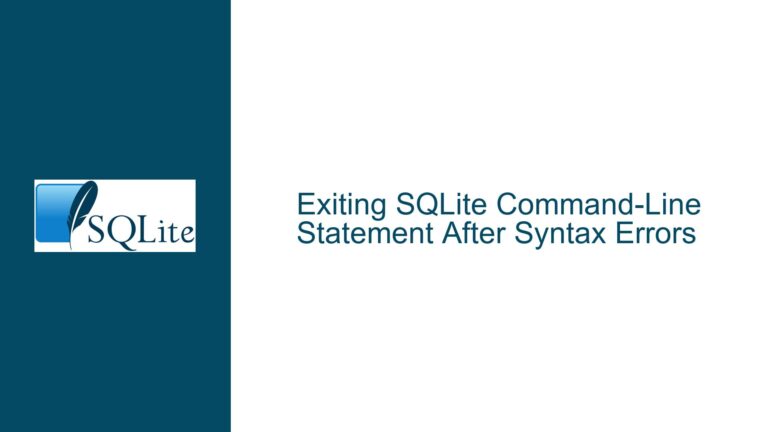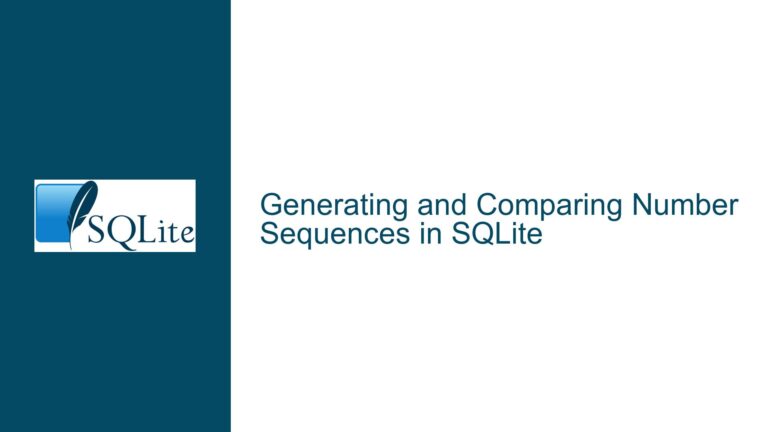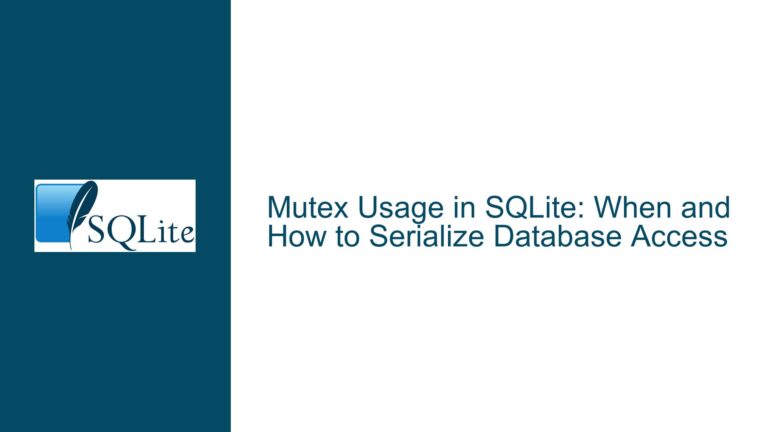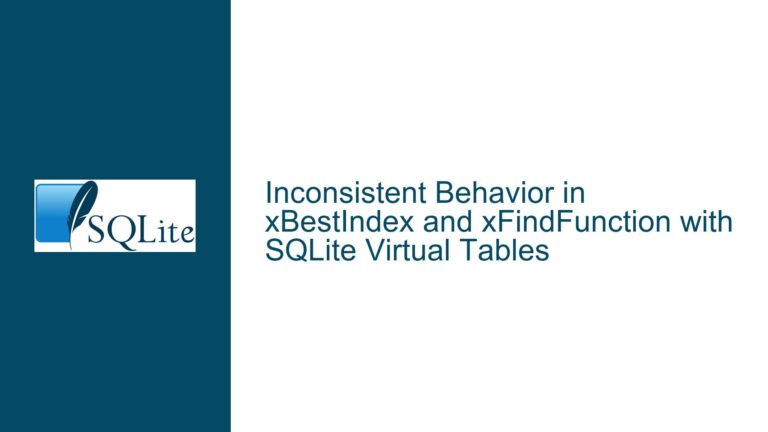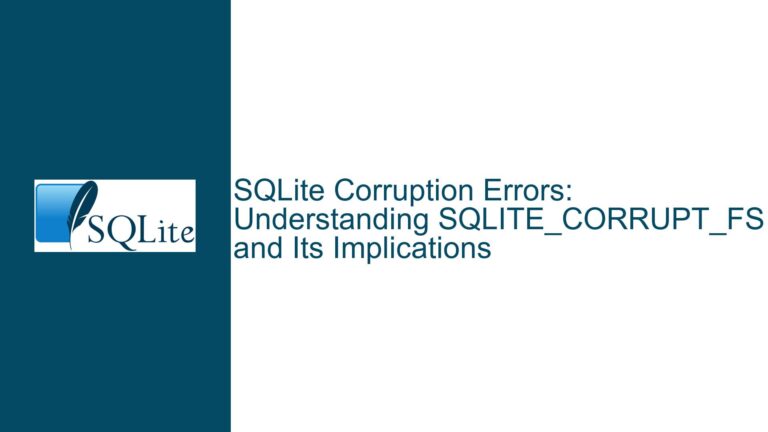SQLite Error Code Conversion: SQLITE_IOERR_CORRUPTFS to SQLITE_CORRUPT
SQLite_IOERR_CORRUPTFS Error Code Conversion to SQLITE_CORRUPT In SQLite, error handling is a critical aspect of ensuring data integrity and providing meaningful feedback to applications. One specific scenario involves the conversion of the SQLITE_IOERR_CORRUPTFS error code into a more generic SQLITE_CORRUPT error before it is returned to the application. This conversion raises questions about the rationale…
